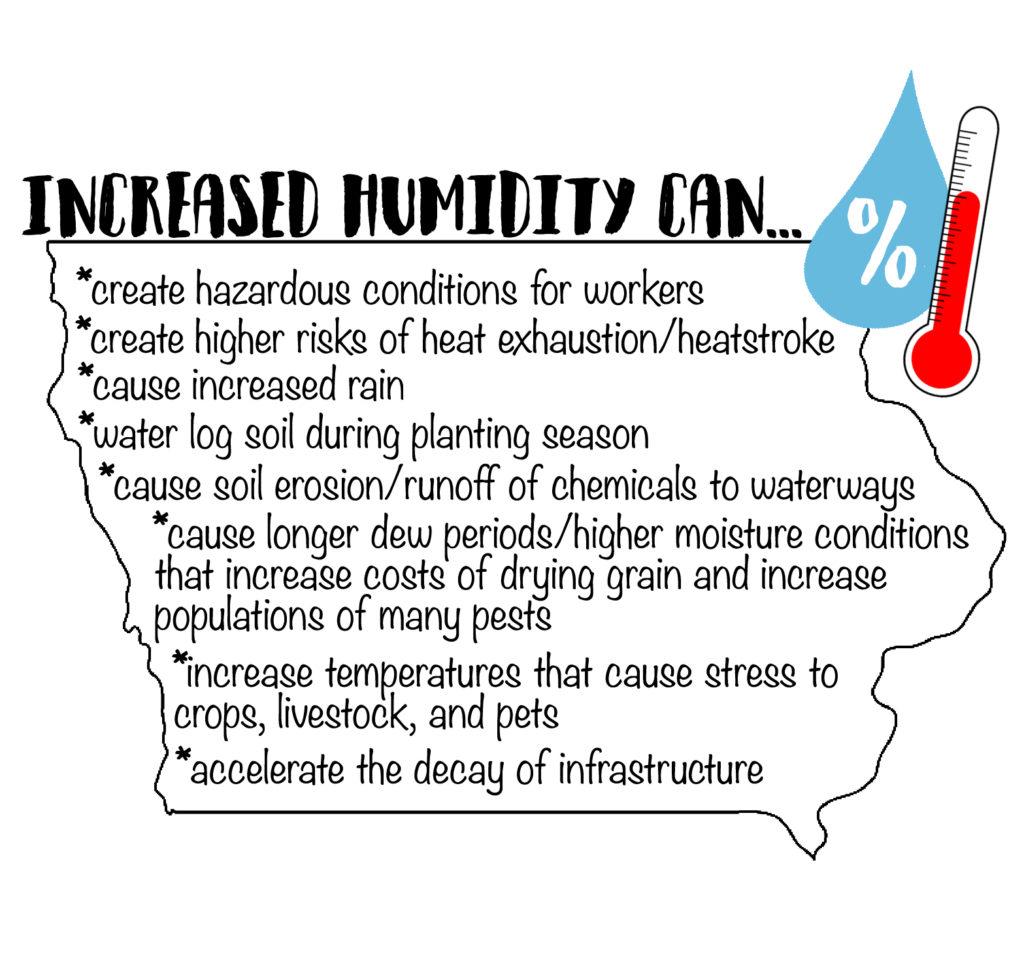By Carter Howe
howethom@grinnell.edu
The Center for Global & Regional Environmental Research at The University of Iowa released the 2017 Iowa Climate Statement, titled “It’s not just the heat, it’s the humidity!” in early August. The annual statement, started in 2011, is meant to explain in plain language new developments in climate science and the effects of climate change on Iowans.
Gene Takle, director of Iowa State University’s Climate Science Program, and Betsy Stone, associate professor of chemical and biochemical engineering at the University of Iowa, led the drafting of the statement, though many other scientists also contributed to its content.
Four Grinnell College faculty were among 190 professors and scientists from 39 institutions of higher education in Iowa to sign the statement.
According to the statement, communities in Iowa have experienced significant increases in humidity since 1971, ranging from a rise of 8 percent in Mason City to a significant rise of 23 percent in Dubuque.
Increased humidity, which is the focus of the statement, has many detrimental effects on public health and agriculture. For humans, besides increased mosquito populations, an increased risk of heat stroke is another potential health problem.
“When you heat the earth’s surface, if there is any water present, more of it goes from a liquid state to a vapor,” wrote Professor Liz Queathem, biology, in an email to The S&B. Queathem is one of the Grinnell professors who endorsed the statement.
“When the humidity is very high, it’s hard for the water in sweat to evaporate because there is already so much moisture in the air, so sweating no longer becomes a viable means of cooling. That’s why the heat index is more important than the actual temperature in determining how comfortable you are,” Queathem wrote.
For agriculture, increased humidity can worsen soil erosion and lead to more pests and pathogens, which can harm both crops and stored grain, according to the statement.
Professor Jonathan Andelson, anthropology, another endorser of the statement, wrote in an email to The S&B that he chose to sign the statement because of the magnitude of the problem that both humans and the planet face under climate change.
“Climate disruption is clearly one of the defining challenges of our time — perhaps the defining challenge, considering all of the impacts (mostly negative) it will have on nearly every person in the world, not to mention the rest of Earth’s biome,” Andelson wrote.
Queathem said that above all, it is important to take action on climate change because it is not just an environmental issue, but an issue of morality and equality.
“Although there are many issues that we have to face today (racism, hate speech, economic and health disparities, etc.), climate change is arguably the largest — not because it is more important than racism or economic disparities, but because it magnifies the effects of inequity, and once it has reached a tipping point, we may not be able to reverse it,” she wrote. “The poor and disenfranchised disproportionately bear the negative effects of climate change, because they cannot afford to move. If you look at the photos from disasters like Hurricane Katrina, it becomes very clear who suffers most when storm frequencies and intensities increase.”






























































